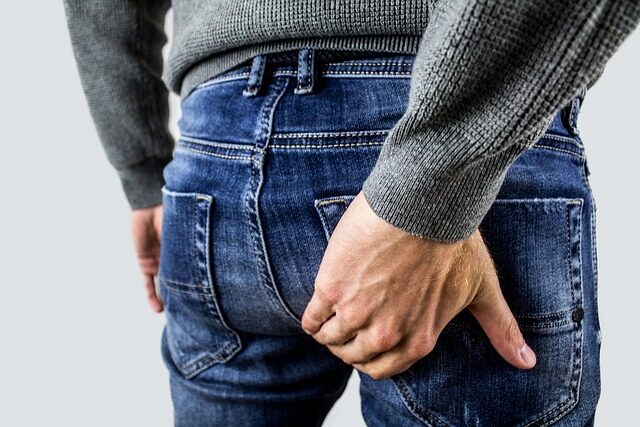Understanding the Causes of Hemorrhoids and Tips for Prevention

Hemorrhoids: Causes and Prevention Tips
Hemorrhoids, also known as piles, are a common health concern affecting millions worldwide. Understanding their causes and implementing effective prevention strategies can significantly enhance one's quality of life.
Hemorrhoids can manifest due to various factors, ranging from dietary choices to lifestyle habits. In this article, we'll explore the causes of hemorrhoids and tips for prevention, aiming to provide valuable insights and practical advice for those seeking relief.
- What Are Hemorrhoids?
- What Causes Hemorrhoids?
- How Do Hemorrhoids Form?
- What Common Habit Can Lead to Hemorrhoids?
- What Are the Symptoms of Hemorrhoids?
- What Is the Best Way to Treat Hemorrhoids?
- Can Hemorrhoids Be Prevented?
- Understanding the Causes of Hemorrhoids and Tips for Prevention
- Managing Hemorrhoids During Pregnancy
- Related Questions on Hemorrhoid Causes and Prevention
What Are Hemorrhoids?
Hemorrhoids are swollen veins located in the lower part of the rectum and anus. Referred to as piles, they can develop internally within the rectum or externally under the skin around the anus. While not life-threatening, they can cause discomfort, bleeding, and itching, affecting daily activities.
There are two main types of hemorrhoids: internal and external. Internal hemorrhoids reside inside the rectum and are usually painless, whereas external hemorrhoids are under the skin around the anus and can be quite painful, especially when inflamed.
Recognizing the symptoms of hemorrhoids is key to seeking timely medical advice and treatment. Common symptoms include bleeding during bowel movements, itching, and rectal pain.
What Causes Hemorrhoids?
The causes of hemorrhoids are multifactorial, often related to increased pressure in the lower rectum. Straining during bowel movements, prolonged sitting, and chronic constipation or diarrhea can lead to the development of hemorrhoids. Additionally, being overweight or pregnant can contribute to the pressure on the pelvic veins, exacerbating the condition.
Another significant factor is age. As we grow older, the tissues that support the veins in the rectum and anus can weaken and stretch, increasing the likelihood of hemorrhoids. A family history of hemorrhoids may also predispose individuals to this condition.
How Do Hemorrhoids Form?
Hemorrhoids form when the veins around the anus or in the rectum become swollen and inflamed. Several mechanisms contribute to their formation, including:
- Increased abdominal pressure, particularly during straining, can push blood into the veins, causing them to swell.
- Impaired venous return due to sitting or standing for extended periods can lead to the pooling of blood and subsequent hemorrhoid development.
- Changes in diet or bowel habits, often resulting in constipation or diarrhea, can contribute to the formation of hemorrhoids by causing undue strain during defecation.
What Common Habit Can Lead to Hemorrhoids?
One common habit that can lead to the development of hemorrhoids is a sedentary lifestyle. Prolonged sitting, particularly on the toilet, increases the pressure on the veins in the lower rectum. Additionally, a diet low in fiber can lead to constipation, which is a major contributing factor, as it can cause excessive straining during bowel movements.
It's important to adopt lifestyle changes to prevent hemorrhoids, such as engaging in regular physical activity and maintaining a diet high in fiber to promote healthy bowel movements and reduce the risk of straining.
What Are the Symptoms of Hemorrhoids?
The symptoms of hemorrhoids can vary depending on whether they are internal or external. Common symptoms include:
- Painless bleeding during bowel movements – you might notice small amounts of bright red blood on your toilet tissue or in the toilet bowl.
- Itching or irritation in your anal region.
- Pain or discomfort, especially when sitting.
- Swelling around your anus.
- A lump near your anus, which may be sensitive or painful (external hemorrhoids).
What Is the Best Way to Treat Hemorrhoids?
The treatment of hemorrhoids ranges from home remedies to medical procedures, depending on the severity of the symptoms. Mild cases often respond well to home remedies for hemorrhoids relief, such as sitz baths, over-the-counter creams, and increasing fiber intake. More severe cases may require medical treatments like rubber band ligation, sclerotherapy, or even surgical removal.
It is always best to seek advice from a healthcare professional to determine the most appropriate treatment for your individual situation.
Can Hemorrhoids Be Prevented?
Preventing hemorrhoids involves a combination of dietary and lifestyle adjustments. Here are some tips:
- Consume a high-fiber diet to soften stools and reduce the need to strain during bowel movements.
- Stay hydrated by drinking plenty of water, which can help prevent constipation.
- Exercise regularly to reduce pressure on the veins, which can occur with prolonged sitting or standing.
- Avoid straining during bowel movements and do not sit on the toilet for extended periods.
- Maintain a healthy weight to decrease the pressure on the veins in your pelvis and rectum.
As part of our discussion on prevention, let's take a look at a helpful video which provides additional insights:
Understanding the Causes of Hemorrhoids and Tips for Prevention
Understanding the causes of hemorrhoids is essential for prevention and effective management. Leading a healthy lifestyle, staying active, and monitoring dietary habits can play a significant role in both preventing and alleviating the symptoms of hemorrhoids.
It's important to recognize the impact of diet on hemorrhoids and make appropriate changes. The inclusion of how diet affects hemorrhoids cannot be overstated when discussing prevention strategies.
Managing Hemorrhoids During Pregnancy
Pregnancy is a common time for the development of hemorrhoids due to increased pressure on the pelvic veins and hormonal changes. Expectant mothers can manage hemorrhoids by avoiding constipation, using topical treatments for symptom relief, and discussing with their healthcare provider for appropriate interventions.
It's essential for pregnant women to be proactive in seeking treatment and making lifestyle adjustments to minimize the discomfort associated with hemorrhoids during this sensitive period.
What Helps Prevent Hemorrhoids?
To prevent hemorrhoids, it's crucial to focus on dietary habits, such as including more fiber from fruits, vegetables, and whole grains. Regular exercise and avoiding long periods of sitting can also help reduce the risk.
Additionally, practicing good toilet habits, like going as soon as you feel the urge and not straining, can be effective in preventing hemorrhoids from forming or worsening.
What Is the Number 1 Cause of Hemorrhoids?
The number 1 cause of hemorrhoids is straining during bowel movements. This is often due to constipation, which can be mitigated by a high-fiber diet and adequate hydration.
Minimizing straining and ensuring regular, soft bowel movements are key strategies in preventing the formation of hemorrhoids.

How Do I Stop My Hemorrhoids from Progressing?
To stop hemorrhoids from progressing, address the underlying causes, such as constipation or prolonged sitting, and implement appropriate lifestyle changes. Seek medical advice if symptoms worsen or do not improve with home management.
Consistent adherence to prevention tips can halt the progression of hemorrhoids and provide significant relief.
What Shrinks Hemorrhoids Fastest?
Treatments that can shrink hemorrhoids quickly include over-the-counter creams, suppositories, or pads designed to reduce swelling and alleviate symptoms. In some cases, procedures like rubber band ligation may be recommended for faster results.
Consulting a healthcare professional is vital to determine the most effective and rapid treatment for your specific condition.
Remember, while hemorrhoids can be uncomfortable and sometimes persistent, there are numerous ways to manage and prevent them. Adopting the right tips for prevention and seeking appropriate treatment can greatly improve your quality of life.

Leave a Reply